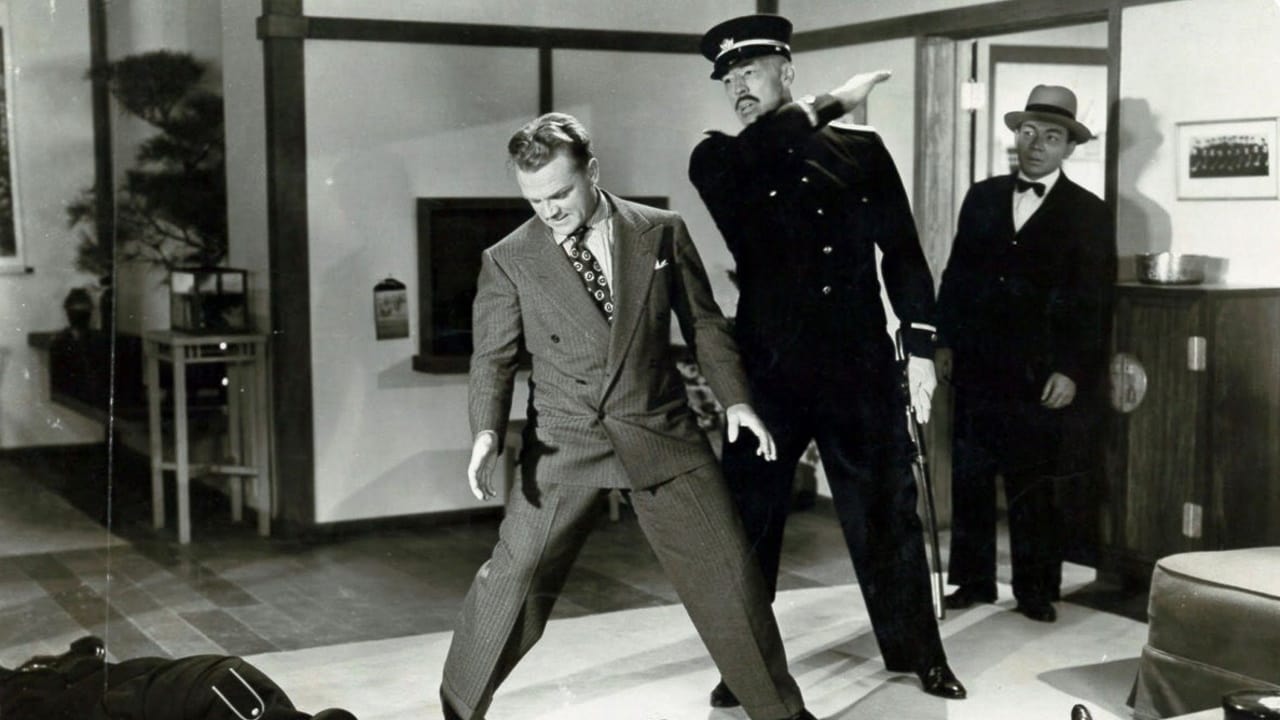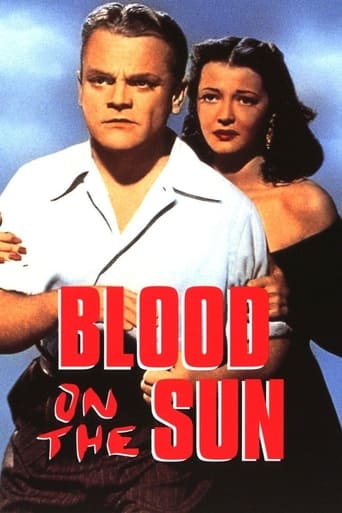

James Cagney goes to Japan in this dated slice of anti-Japanese propaganda which sees the gangster star tackling a government intent on world domination. With much of the supporting cast made up of American actors "yellowed up" for their roles and a decidedly anti-Japanese sentiment to the storyline and its resolution, it's hard for modern viewers to enjoy this one.Cagney is as good as ever as the crusading reporter aiming to bring to light secret plans by a sinister government, but his role is one of those which could have been played by anybody and he can do little with it. In a nutshell, he's not as fun as he was in his gangster movies. The supporting cast is also a disappointment, made of up caricatures and stereotypes for the most part. While BLOOD ON THE SUN does boast a handful of fun martial arts fight scenes and a couple of decent set-pieces - especially at the climax - as a whole it's a rather middling slice of screen entertainment.
... View MoreLester Cole, arguably better known as one of the Holllywood Ten than a screenwriter, wrote this back to back with Objective Burma, which was released in the same year, 1945. Several times recently I've watched, for the first time, films produced fifty or more years ago when clearly both standards and expectations were lower than those that obtain today. For a film starring 'tough guy' James Cagney, there is surprisingly little 'action' in Blood On The Sun so that it plays more like a 'think' piece on Asian politics, a more or less pseudo-Idiot's Delight written by Robert Riskin rather than Robert E. Sherwood. Cagney set it up himself so the 'message' was presumably one he felt both important and worth the telling. By 1945 Sylvia Sydney wasn't working all that much so it's good to get a glimpse of her, whilst Rosemary de Camp is disposed of far too soon. Curio value.
... View MoreJames Cagney (as Nick Condon) is a reporter in Tokyo; a dutiful, precognizant American, he confronts the increasing grip of Fascism on the Japanese people, during the reign of Tanaka Giichi. Sylvia Sidney (as Iris Hilliard), is a mysterious part-Chinese woman, who provides Mr. Cagney with intrigue and romance. While Ms. Sydney is somewhat successful in her portrayal, the other Japanese impersonations are embarrassing. The movie bases much of its storyline on the existence of the "Tanaka Document", a Hitler-type blueprint for evil, which was more likely a propagandist's creation. Under these circumstances, Cagney and company's attempt to produce convincing entertainment collapses.
... View MoreThe film doesn't get high marks as part of Cagney's body of work, but I found it to be a fairly gripping pre-War espionage thriller, and all the while you anticipate his character getting captured or knocked off. The story involves the stolen plans of Japanese militarists to conquer the world via Manchuria, China and ultimately the United States. As managing editor of the Tokyo Chronicle, Nick Condon (Cagney) sets the wheels in motion for a host of Japanese villains to re-secure the document, at the same time attempting to define the true nature of an effective double agent, Iris Hilliard (Sylvia Sydney).If you've seen enough films of the era, you won't be surprised by the lack of Orientals portraying Japanese characters, even Charlie Chan was played by non-Asians. John Emery's Tanaka was generally effective, but Robert Armstrong's Tojo and John Halloran's Captain Oshima verged on comic caricature at times, and probably accounts for the movie's lack of credibility in some quarters. Hijikata (Leonard Strong), on the other hand is almost played for comic nuance, but all the while I kept picturing Peter Lorre in the role, he would have added a sinister malice to the bumbling.Keep an eye on that early scene when Ollie Miller (Wallace Ford) stumbles through the window at Condon's home, he falls completely inside. However as soon as Nick gets there, Miller's feet protrude out over the bottom of the panel.As others on this board have pointed out, the movie doesn't adopt an anti-Japanese posture, but one that's anti-Fascist. If you listen carefully, there are some chilling prophecies by the militarists having to do with America's being crushed and Yamamoto's near glee at being present at the White House to hear the U.S. acceptance of Japanese peace terms. I imagine though that the balance in the film was probably overlooked at the time of the film's release on the heels of America's victory in World War II. Even growing up in the Fifties, I recall Japanese being referred to as 'Japs', with an emphasis on the derogatory.Perhaps the surprise in the story is Cagney's display of martial arts skill in not one but two judo skirmishes. His moves, as well as those of his opponents, are generally quite basic, but they're a lot more believable than Sinatra's antics in "The Manchurian Candidate" almost two decades later. I can't recall now whether Cagney's training was just for the film or if it reflected an interest in the discipline itself.It's probably best that the story ends as it does, without Nick and Iris making a successful getaway together. Of course, Nick should have been a goner, so the finale is another opportunity to show how inept the Japanese villains could be, and it sets up that great closing line - "Forgive your enemies, but first get even".
... View More